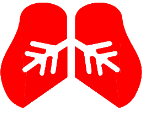Allergy Shots
Allergy shots are recommended for patients age 5 and older with allergic asthma, allergic rhinitis/conjunctivitis and stinging insect allergy. They are not recommended for food allergies.
Immunotherapy for children is effective and often well tolerated. It might prevent the onset of new allergen sensitivities or the progression to asthma. In some patients that suffer from other medical conditions or who take certain common medications, allergy shots may be more risky. It is important to mention other medications you take to your allergist.
Because adverse reactions to allergy shots may occur, your allergist has the right staff and equipment to identify and treat these reactions. If possible, allergy shots should be given in your allergist's office. If not, your allergist should provide the supervising physician with complete instructions about your treatment.
Allergy shots work to desensitize your immune system to specific allergens that trigger allergic symptoms. Your body responds to the injected amounts of a particular allergen (given in gradually increasing doses) little by little, developing a resistance and tolerance to it. Allergy shots can lead to decreased, minimal or no allergy symptoms when you are again exposed to the allergen(s) in the shot.
There generally are two phases to immunotherapy: build-up and maintenance. The build-up phase, generally ranging from three to six months, involves receiving injections with increasing amounts of the allergens. The frequency of injections is once or twice a week, though more rapid build-up schedules are sometimes used. The maintenance phase begins when the most effective dose is reached. This dose is different for each person, depending on how allergic you are and your response to the build-up phase. Once the maintenance dose is reached, there are longer periods between injections, typically two to four weeks.
Once the maintenance dose is reached, effective immunotherapy is generally continued for three to five years. The decision to stop should be discussed with your allergist at that time. Some individuals may experience a permanent reduction of their allergy symptoms but others may relapse and a longer course of allergy shots can be considered.
For some people, a decrease in symptoms is seen during the build-up phase; for others, it may take as long as 12 months on the maintenance dose.
If you don't respond, it may be caused by:
1.Not enough dose of the allergen in your vaccine
2.Missing allergens not identified during your allergy testing
3.High levels of the allergen in your environment
4.Major exposure to non-allergic triggers (i.e. tobacco smoke)
If there is no improvement after a year of maintenance allergy shots, your allergist will discuss other treatment options with you.
There are two types of adverse reactions that occur with allergy shots. Local reactions are fairly common and occur as redness and swelling at the injection site. This can happen immediately, or several hours after the treatment. Systemic reactions are much less common, are usually mild and typically respond quickly to medications. Signs include increased allergy symptoms such as sneezing, a stuffy nose or hives. Rarely, a serious systemic reaction called anaphylaxis (pronounced an-a-fi-LAK-sis) can develop, with swelling in the throat, wheezing, a feeling of tightness in the chest, nausea or dizziness. Most serious systemic reactions develop within 30 minutes of allergy injections. This is why it is strongly recommended you wait in the office for 30 minutes after your injections. Your allergist is trained to watch for such reactions and his or her staff is trained and equipped with the proper medications to identify and treat them.
Skin Testing
Skin testing is fast. Positive reactions usually appear within 15 minutes of application
Skin tests generally have little or no pain. However, positive reactions cause annoying itching red bumps which look and feel like mosquito bites. The itching and bumps are gone usually in just a few short minutes or hours.
Intradermal skin testing is occasionally indicated. This involves the injection of a small amount of extract underneath the skin and can cause a minor amount of pain.
Some medicines do interfere with allergy skin tests. It is important that antihistamines be stopped 48 hours prior to your visit. Most asthma medications (including inhalers) should be continued as instructed. Please contact us with any questions regarding any specific medications.
